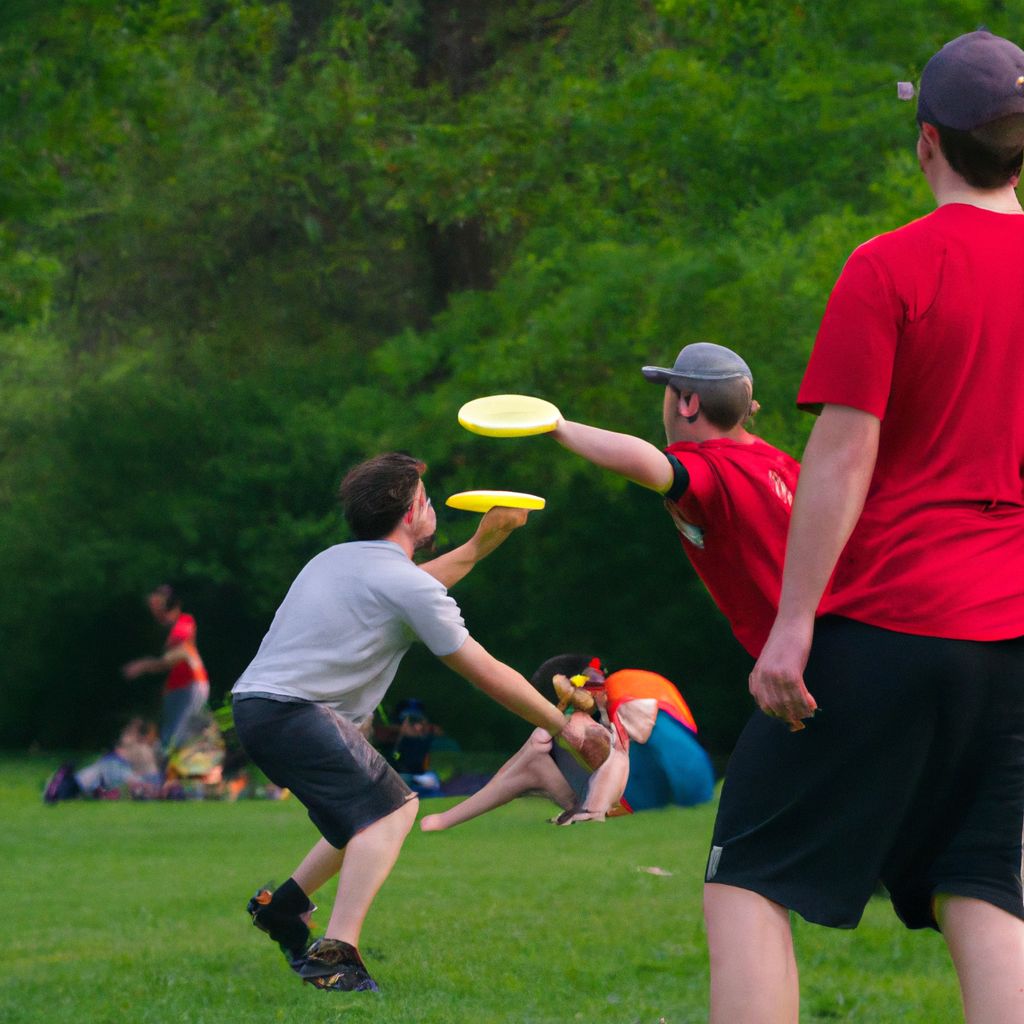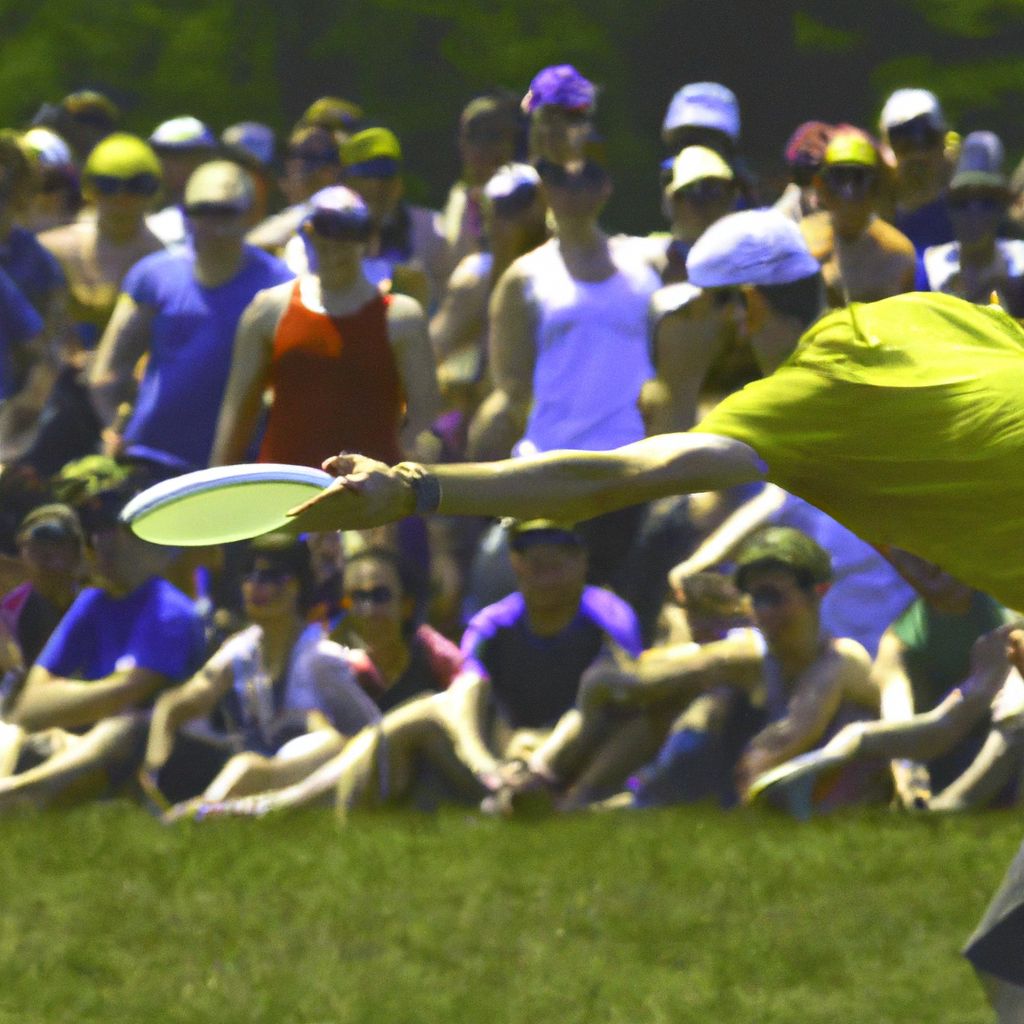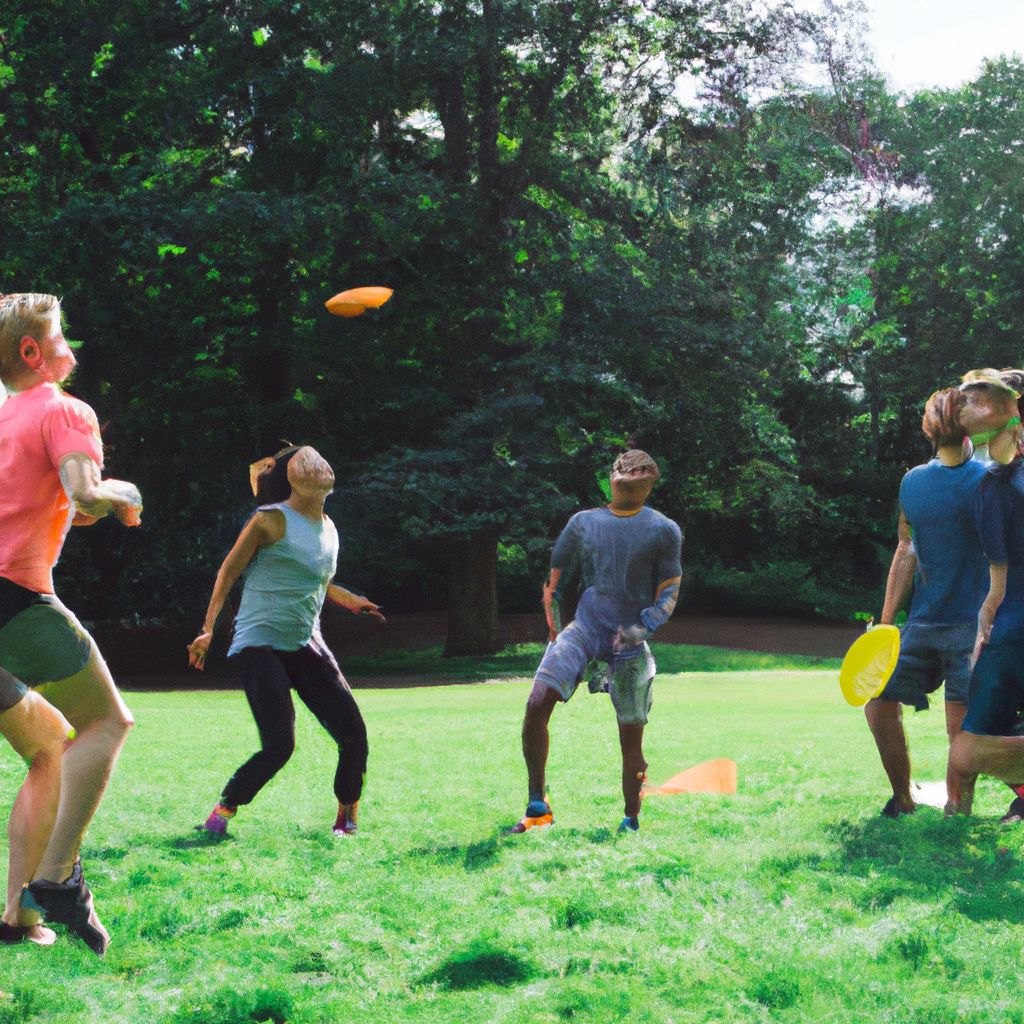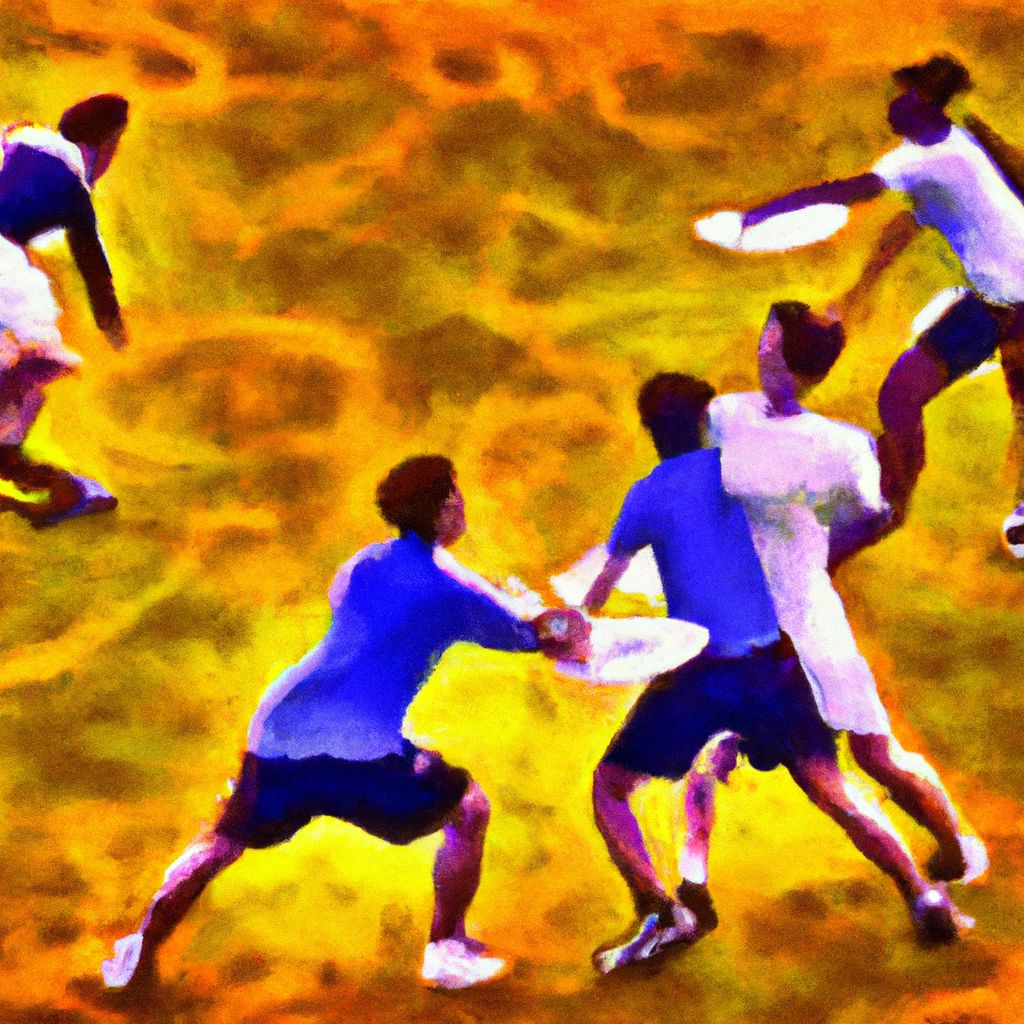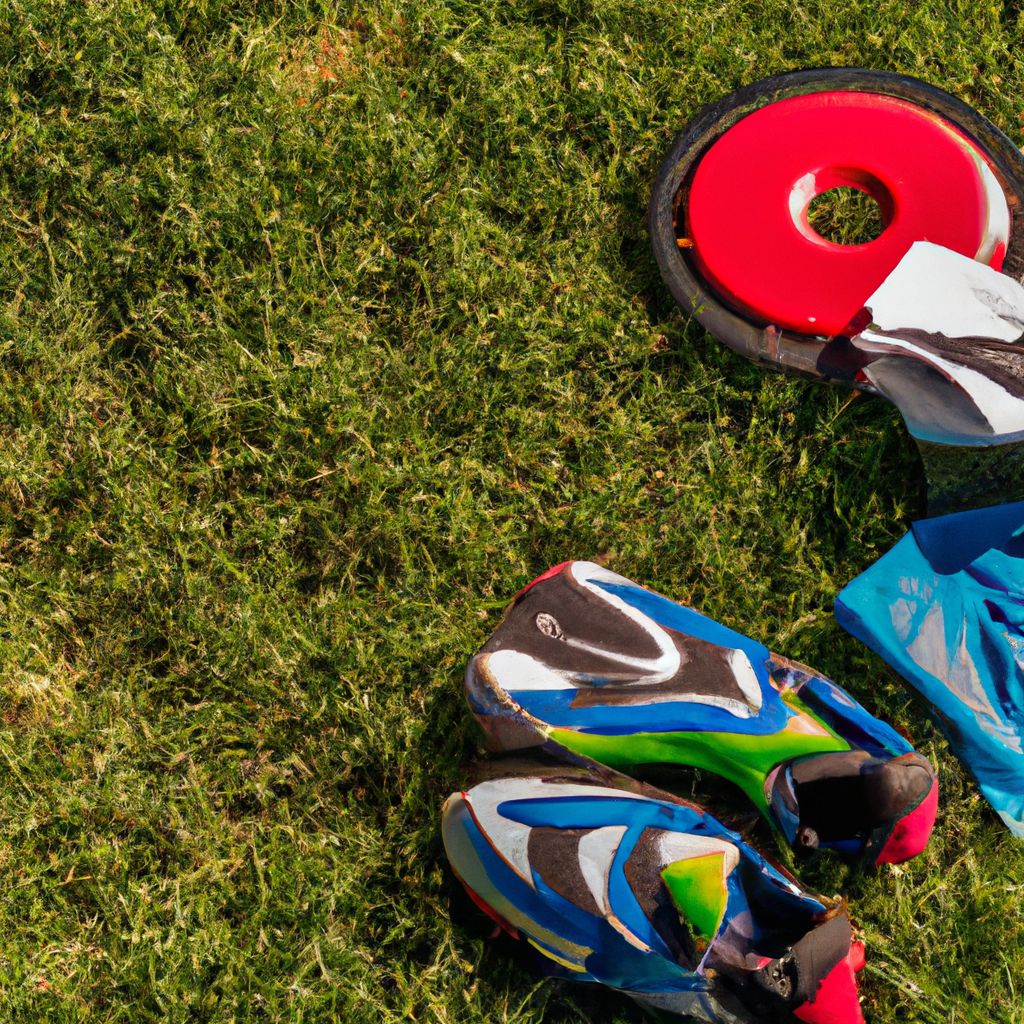- Introduction to Ultimate Frisbee
- Basic Rules of Ultimate Frisbee
- Understanding the Field
- Player Roles and Responsibilities
- Advanced Rules and Strategies
- Importance of Spirit of the Game in Ultimate Frisbee
- Getting Started with Ultimate Frisbee
Introduction to Ultimate Frisbee

Ultimate Frisbee, also commonly known as Ultimate, is a fast-paced, non-contact sport that combines elements of soccer, basketball, and American football. It's played with a flying disc and the objective is to score points by passing the disc to a player in the opposing end zone.
The sport was invented in the late 1960s by a group of high school students in New Jersey, USA. The name 'Frisbee' is a registered trademark of the Wham-O toy company, but the term has since become genericized to describe all flying discs.
Ultimate Frisbee has grown immensely over the past few decades. According to the World Flying Disc Federation (WFDF), there are now Ultimate leagues in more than 80 countries, with an estimated 7.5 million people playing the sport worldwide.
The sport's growth has been fueled by its unique spirit, emphasis on sportsmanship, and the fact that it can be played by anyone, regardless of age or athletic ability. The sport has also gained recognition for its gender equity initiatives, with mixed gender teams being the norm at all levels of play.
Basic Rules of Ultimate Frisbee
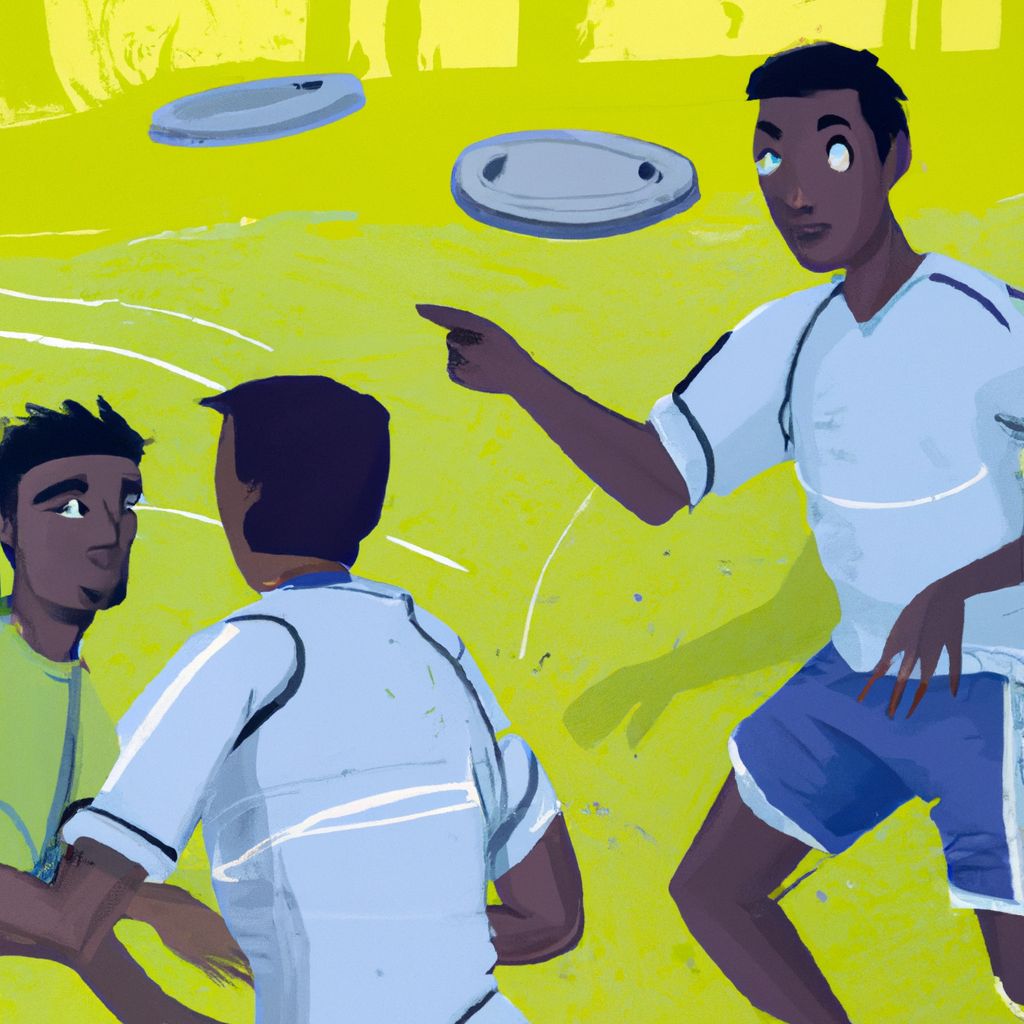
Understanding the basic rules of Ultimate Frisbee is key to enjoying the game. Here are some of the most fundamental rules:
- Objective of the Game:
- The main aim of Ultimate Frisbee is to score points by catching the disc in the opponent's end zone. The team that scores the most points within the set time limit wins the game.
- Scoring Rules:
- A point is scored when a player catches the Frisbee in the opposing team's end zone. Each goal is worth one point. After a goal is scored, the teams switch end zones and the team that scored kicks off to the opposing team.
- Starting the Game:
- The game begins with a 'pull' (similar to a kickoff in football) from one team to the other. The team that scored the last point will throw the pull.
- End of the Game:
- The game ends when a team reaches a set number of points, typically 15, or when a predetermined time limit has been reached. If the game is tied when the time limit is reached, the team that scores the next point wins.
It's important to note that Ultimate is a self-officiated sport, meaning there are no referees. Players are responsible for calling their own fouls and resolving disputes themselves. This aspect of the game is known as the 'Spirit of the Game' and is a fundamental part of Ultimate culture.
Understanding the Field
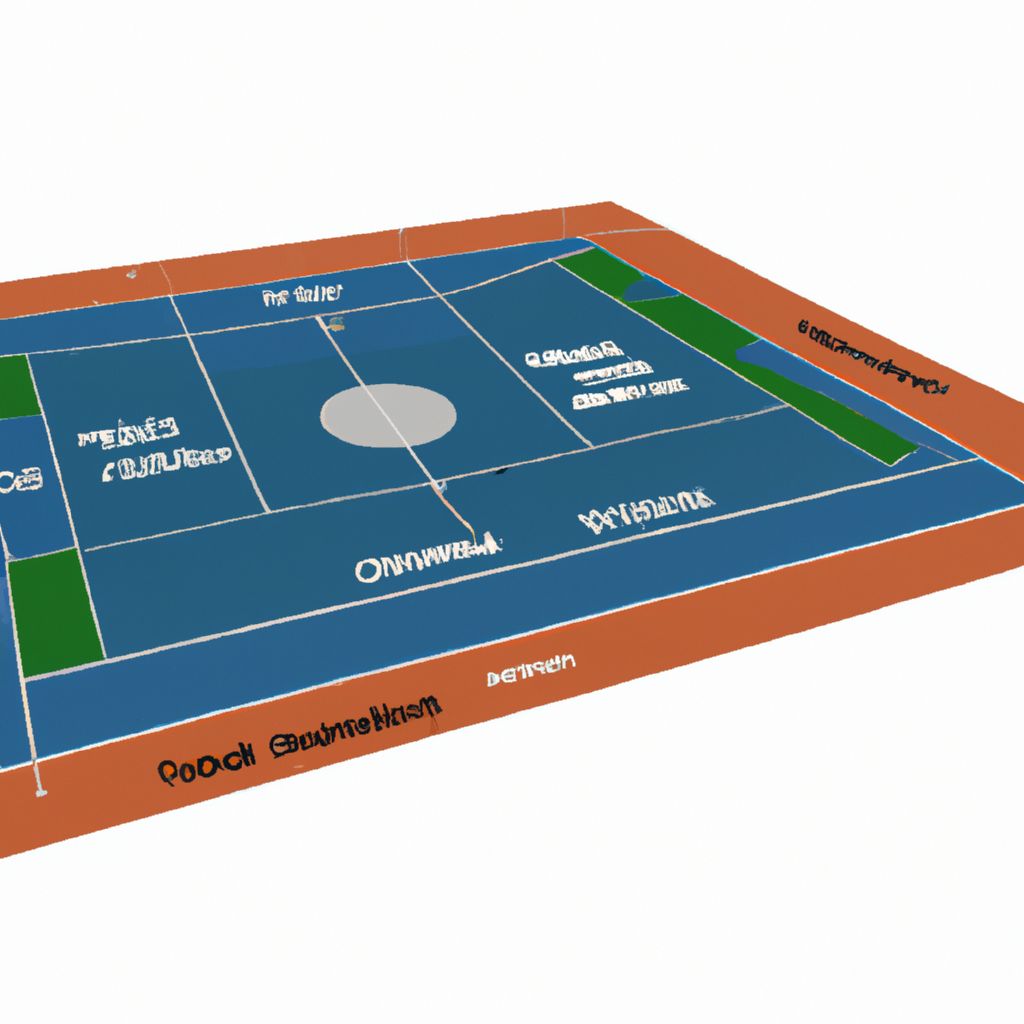
The playing field for Ultimate Frisbee is rectangular, similar to a football field, but with unique dimensions and zones. Understanding these is crucial for both players and spectators alike as they greatly affect the gameplay.
- Field Dimensions:
- The official field dimensions as set by the World Flying Disc Federation (WFDF) are 100 meters long and 37 meters wide. This includes two end zones that are each 18 meters deep.
- Zones:
- The field is divided into three main areas: two end zones and a central playing area. The end zones are where points are scored. The central playing area is where the majority of the gameplay takes place.
- Layout:
- The field layout is marked with cones at each corner and at the transition between the playing area and the end zones.
The size and layout of the field have a significant impact on the game. The large field size allows for long throws and strategic positioning, while the distinct zones require teams to adapt their strategies depending on their position on the field. For example, a team on defense near their own end zone might adopt a more conservative strategy to prevent the opposing team from scoring.
Player Roles and Responsibilities

In Ultimate Frisbee, each player has specific roles and responsibilities, often dictated by their position on the field. These roles are fluid and can change rapidly during the game. The two primary roles are handlers and cutters.
- Handlers:
- Handlers are the primary disc carriers and throwers on the team. They're typically the most experienced and skilled throwers. Their responsibility is to control the disc, make strategic throws, and drive the offense.
- Cutters:
- Cutters are the primary receivers on the team. They're responsible for running, catching the disc, and then passing it off to a handler or another cutter. Cutters need to be agile and quick, with the ability to change direction rapidly to evade defenders.
While individual skills are vital, teamwork and strategy are equally, if not more, important in Ultimate Frisbee. Effective communication, understanding team strategies, and making quick decisions are key to a team's success. This might involve strategic positioning, coordinated movements, or clever disc passing sequences.
Maintaining possession of the disc is a fundamental strategy in Ultimate. Teams will often use a variety of throwing techniques and patterns to keep the disc away from the opposition and advance towards the end zone. On the defensive side, teams will employ different formations and tactics to disrupt the opposing team's strategies and regain possession of the disc.
Advanced Rules and Strategies

As players become more familiar with Ultimate Frisbee, understanding the advanced rules and strategies becomes essential. These include specific fouls, penalties, and strategic maneuvers that can greatly impact the game.
- Fouls and Penalties:
- In Ultimate, a foul is a violation of the rules, such as physical contact with an opponent or interference with their attempt to catch or throw the disc. When a foul is called, play stops and the disc is returned to the thrower. If the foul is contested, the disc goes back to the thrower and play resumes from the point of the throw.
- Defensive Strategies:
- There are two main defensive strategies in Ultimate, man-to-man and zone defense. In a man-to-man defense, each defender is responsible for guarding a specific opponent. In a zone defense, defenders are responsible for guarding a specific area of the field, rather than a specific player. The strategy chosen often depends on the specific circumstances of the game, such as the skill level of the opposing team, weather conditions, or the score.
- Offensive Strategies:
- On offense, teams employ a variety of strategies to move the disc up the field and score points. These often involve precise throwing and catching techniques, coordinated movements, and strategic positioning. For example, a common strategy is the 'stack', where players line up in the center of the field, creating space on the sides for players to cut into and receive the disc.
Understanding and employing these advanced rules and strategies can greatly enhance a team's performance in Ultimate Frisbee. It's not only about physical skill, but also about strategic thinking, adaptability, and teamwork.
Importance of Spirit of the Game in Ultimate Frisbee
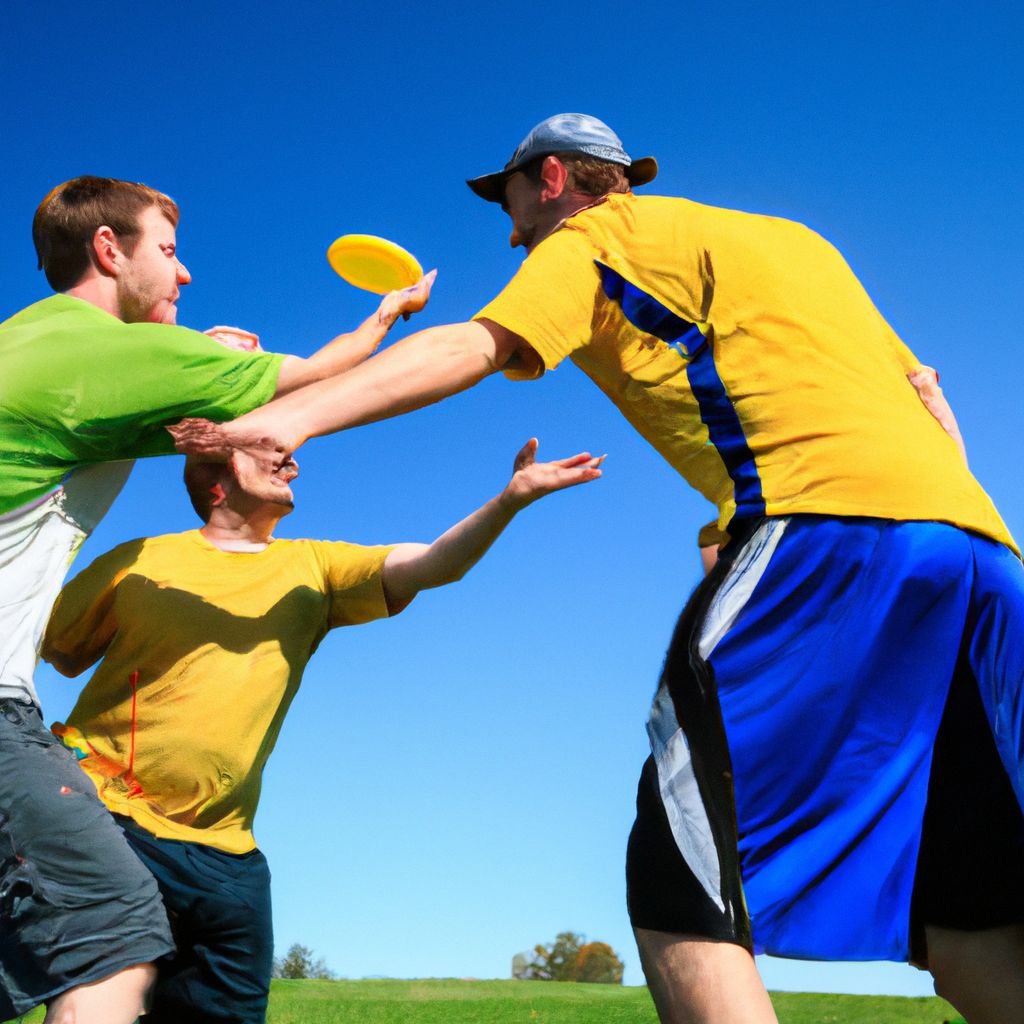
In Ultimate Frisbee, the 'Spirit of the Game' is a fundamental principle that sets it apart from many other sports. The World Flying Disc Federation (WFDF) defines it as a spirit of sportsmanship that places the responsibility for fair play on the player.
Unlike many other sports, Ultimate is self-officiated, meaning there are no referees. Players themselves are responsible for making calls and resolving disputes. This requires a high level of honesty and integrity from all participants, as they must always prioritize fair play over winning at all costs.
The Spirit of the Game encourages players to have a deep respect for their opponents, the rules, and the overall spirit of fair play. It promotes a positive, inclusive environment where competitiveness is balanced with fun and respect.
This unique aspect of Ultimate has been praised for fostering a sense of community, respect, and camaraderie among players. It not only enhances the enjoyment of the game but also teaches valuable life skills such as responsibility, integrity, and conflict resolution.
While the Spirit of the Game can be challenging to uphold at times, especially in high-stakes games, it is widely considered one of the most rewarding aspects of playing Ultimate.
Getting Started with Ultimate Frisbee
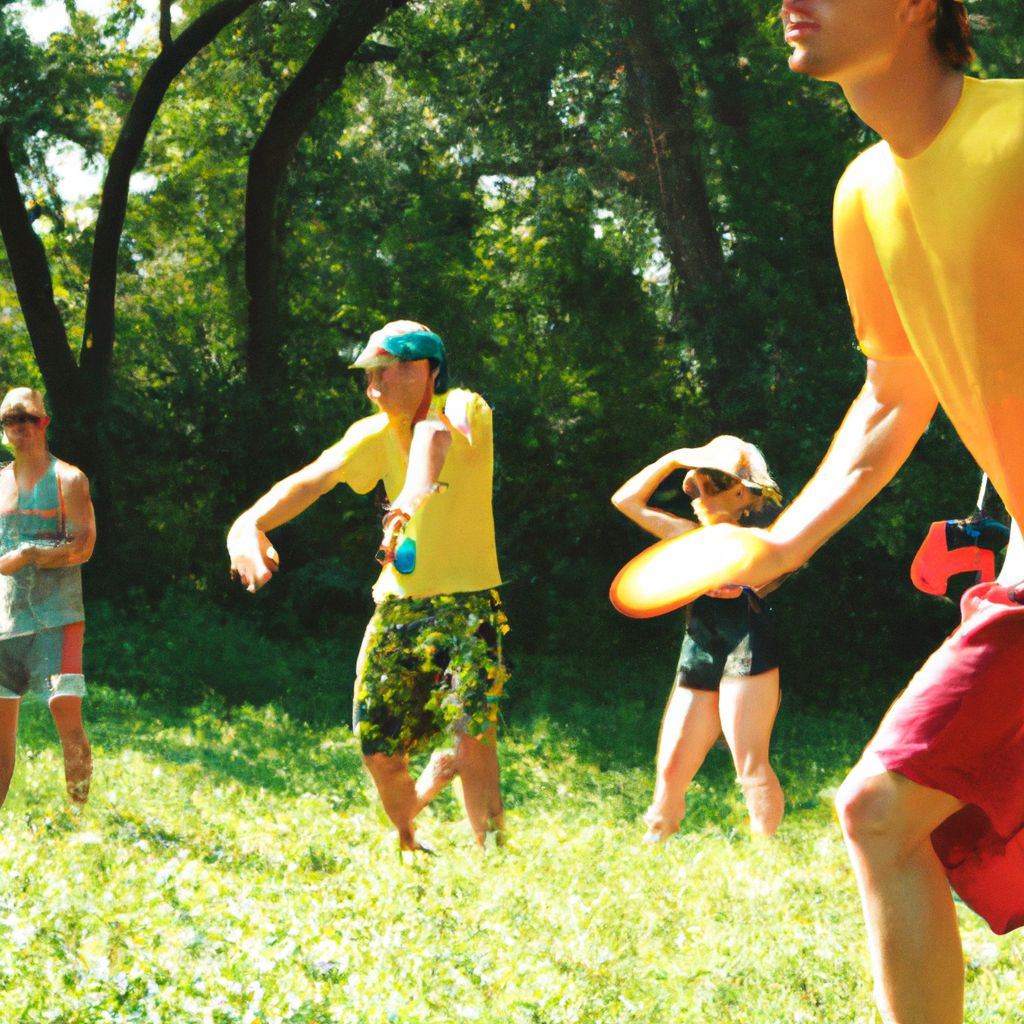
If you're interested in playing Ultimate Frisbee, getting started is easier than you might think. Here are a few tips on how to begin your Ultimate journey:
- Find a Local League or Pickup Game:
- One of the easiest ways to start playing Ultimate is to join a local league or find a pickup game in your area. Many cities have Ultimate Frisbee leagues for all skill levels, from beginner to advanced. Websites like PickupUltimate.com also offer a global directory of pickup games.
- Learn the Basic Rules:
- Before stepping onto the field, it's essential to understand the basic rules of the game. This includes the objective, scoring rules, and basic fouls. The official World Flying Disc Federation (WFDF) rulebook is a helpful resource.
- Practice Essential Skills:
- Throwing and catching the disc are fundamental skills in Ultimate. Practice different throwing techniques, such as the backhand and forehand (also known as the flick), as well as catching techniques. Remember, practice makes perfect!
- Work on Your Fitness:
- Ultimate is a physically demanding sport that requires speed, agility, and endurance. Regular cardiovascular exercise, such as running or cycling, can help improve your fitness level. Strength training can also be beneficial, particularly for improving your throwing power.
- Spirit of the Game:
- Remember, Ultimate Frisbee is as much about sportsmanship and respect as it is about skill and strategy. Always play with the Spirit of the Game in mind.
With these tips, you'll be well on your way to enjoying the exciting and rewarding sport of Ultimate Frisbee.


